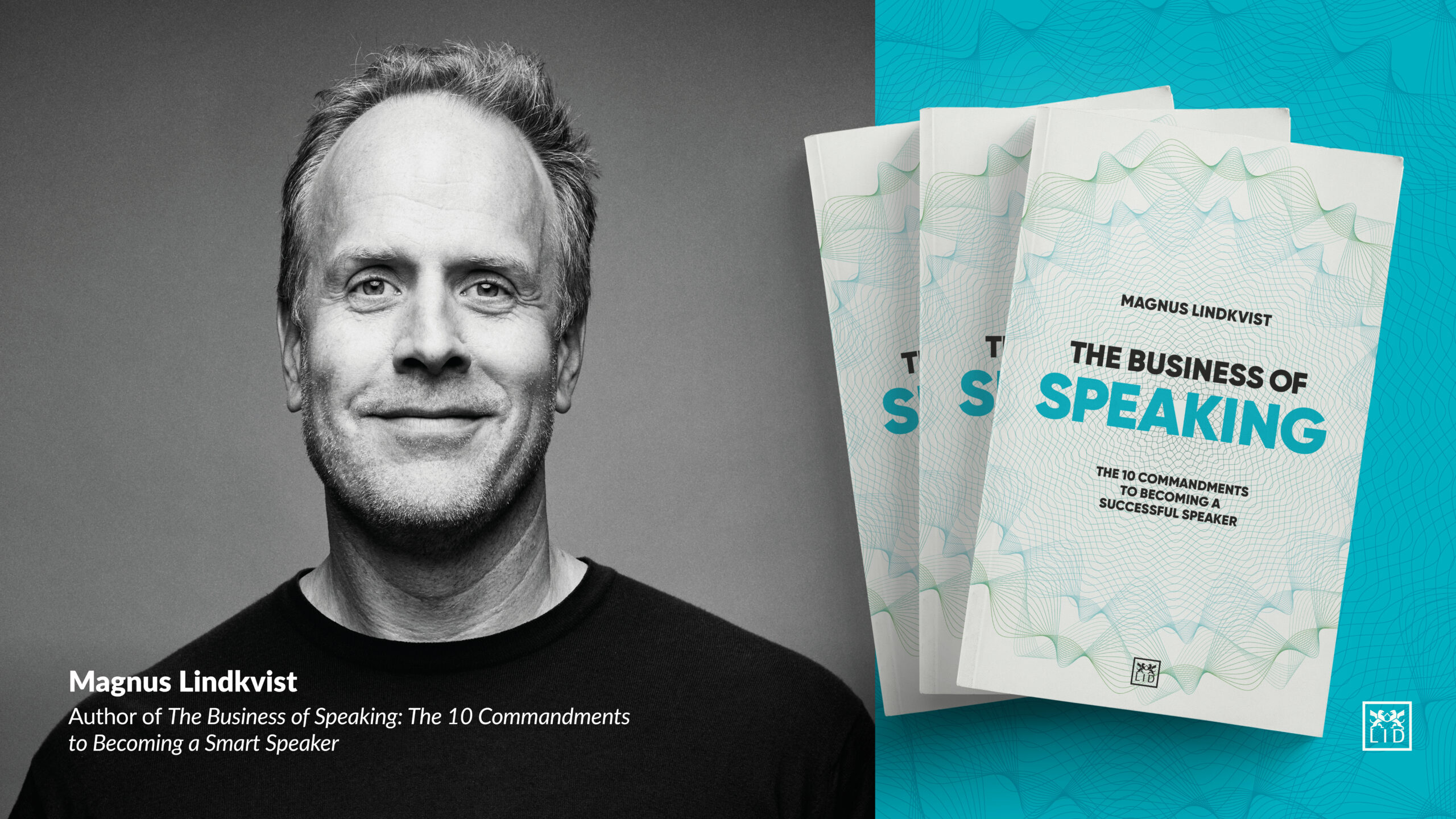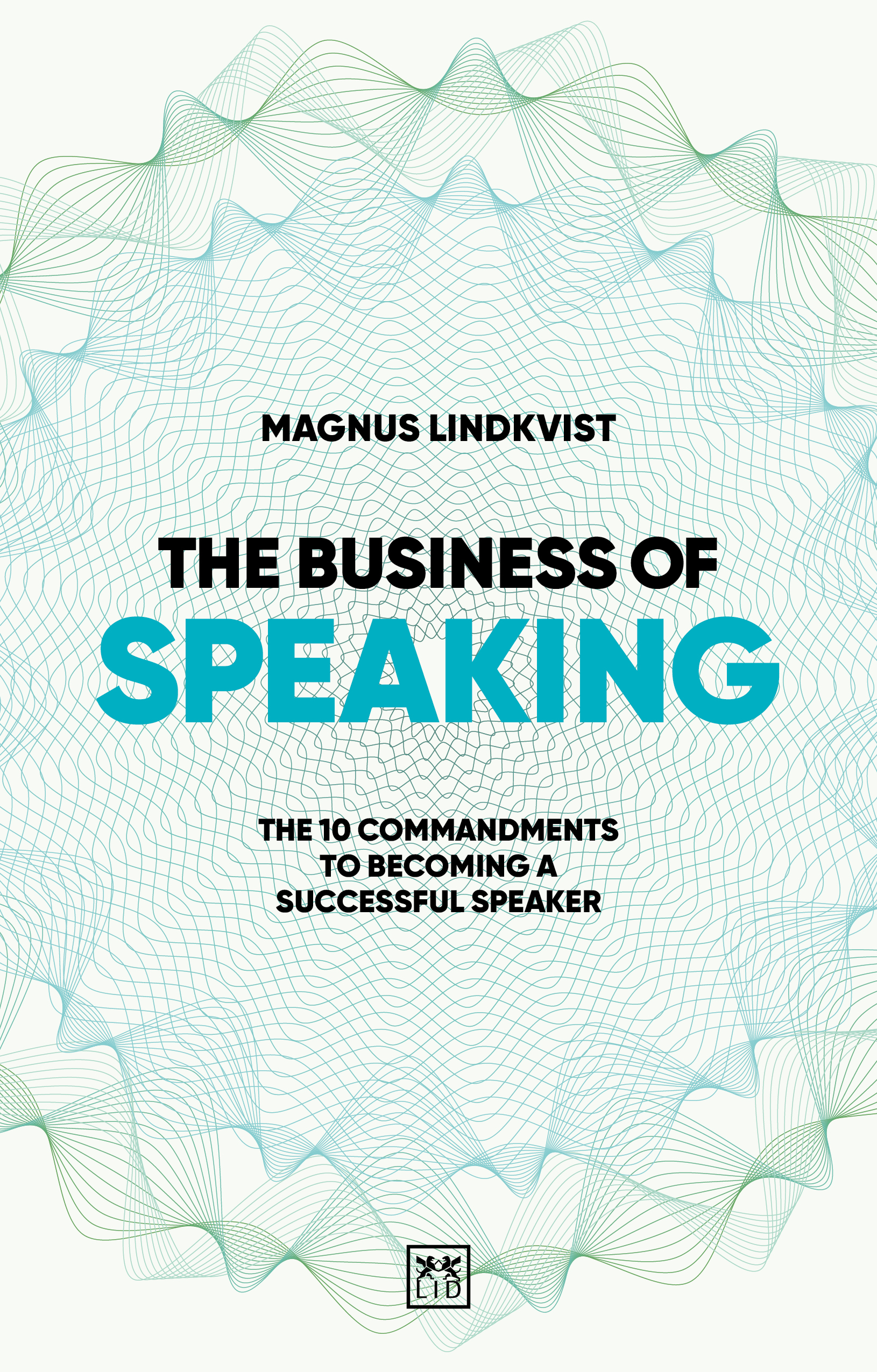|
Thou Shalt Worship No Other Gods Than Nutritious Turds with Magnus Lindkvist
Thou Shalt Worship No Other Gods Than Nutritious Turds

Book Excerpt from The Business of Speaking by Magnus Lindkvist
The Croatian sun shone on the taxi I was sitting in, and the Adriatic glistened outside the window. It was the first day of a family vacation. I had just flown in from delivering a talk in Denmark the day before.
My mind wandered in the back seat as the Dalmatian landscape sped by outside.
Things felt good.
It would not last.
A digital chime pierced the back-seat bliss, announcing the arrival of an email on my phone.
I opened it and could see from the amount of text that this would not be good. It was regarding the Danish session and read as follows:
“Yesterday’s session was a total disaster.
Firstly, as agreed in writing and on the phone, we did not get an in-depth introduction to key trends. We got some generic thinking that, at best, was inspiring but, on the other hand, not at all in alignment with our agreed focus.
Secondly, you ventured off into very normative advice on our strategy that was absolutely off and not based on any deeper insights. It is OK to suggest and give ideas – we love that – but mindlessly dictating what we should or should not do was inappropriate.
Thirdly, the Q&A session developed into a disastrous mocking and ridiculing of us – making inappropriate jokes about the top management team’s looks, criticizing the mission statement, etc. I tried my best to signal and stop it – but you just went on and on. We are absolutely speechless and have never experienced a situation like this.
After the meeting, we needed to handle a furious team that felt really insulted. You stepped way over the line in every possible way. It was a real disaster.
Based on the above, we would like to claim the fee back, and we do not see ourselves in any position to pay for the services, as the agreed terms were violated. Further, we will discontinue our work with you now and in the future.
Sincerely
(NAME REDACTED)”
I was flabbergasted. I sat with my mouth agape as I read these words and felt tremors weld up inside of me. While I did not feel that the session was one of my better ones, calling it a disaster was not in my vocabulary. The client felt personally offended and even wounded.
By a talk? I thought it was the pen, not PowerPoint slides, that was mightier than the sword.
This would haunt me for many years. I underwent all phases – denial, vehement defence, anger and resignation – until I realized that it was a nutritious turd, something very uncomfortable that exists to make you better. This is a chapter about the kind of fuckups that make you wiser.
DOUBLE-LOOP LEARNING IS THE ONLY LEARNING
A few weeks before the Denmark debacle, I received feedback from a German ventilation company after a speech: “What a mind-blowing performance by Magnus yesterday! Our employees were stunned and gave him a standing ovation. He brings such magnitude and force onto the stage that people hang on his lips, gestures and storyline. I have never experienced such a speech full of intelligent content and, at the same time, fabulous entertainment – to the point and all in one flow.”
It was little consolation after being more or less decapitated by the Danish email. Yet the strange thing was that I had given the same speech in both instances. A self-help book or one of those self-aggrandizing motivational videos that thrive on social media would have latched on to the latter email and insinuated that the Danes were fools. The object of this chapter is the exact opposite; only the kind of feedback Denmark gave is useful. Having people tell you what a wonderful speaker you are will only make you complacent.
People prefer flattery and lies that lead them astray to honest truths that can put them right. What nutritional turds do is enable double-loop learning. If you’ve established yourself as a Mercedes S-Class speaker – reliable and reassuringly expensive – it is merely a qualifier, not a differentiation, that you get good feedback, just like we expect a Mercedes to be fast, comfortable and safe. Positive feedback enables no learning; only negative feedback does that. Double-loop learning happens when you are forced to analyse why something did not work and then change your approach accordingly. Kaizen– continuous improvement – happens only when you discover faults and flaws. The market will show you what works – you suggest, and the market rejects. Vehemently, in the Denmark case.
THE HOLY GRAIL … OF CUSTOMER FEEDBACK
Yet the market is not always right, because many stakeholders are involved when you deliver a talk. The person who booked you might have certain opinions, whereas the audience might have completely different ones. Remember the tenet of business as it applies to the speaking world: it may look like the audience is there for the magnificent You (capital Y). They are not. In professional speaking, they have likely not paid out of their pocket to see you.
Take the feedback I received after giving a speech at a project management conference in Rome:
“Magnus certainly has a ‘big’ personality, and our attendees were very excited to hear from him. His book was sold out before his session began. Unfortunately, as a conference content professional working in this industry for many years, I was not pleased with his presentation delivery. While his overall message was well received, Magnus, at times during his presentation, chose to deliver the message by cursing/swearing from the stage (in one comment calling an attendee a “crazy motherfucker”) and then calling out two ladies who were getting up from their seats to leave the session about 40 minutes into his presentation. I am not clear if they left because they were insulted or if they had to catch their flight home. Also, by calling these two ladies out from the stage, the room of 400 attendees turned around to look at them.
“The cursing did not stop, as words were intermittently used throughout the rest of the presentation. My manager, whom Magnus met earlier, changed her seat from the back of the room to the front row in hopes of getting Magnus’ attention and being present, as our board and management team was also sitting up front.
“Concerning his physical slide presentation, the PowerPoint that was emailed to me in a PDF did not include all of the slides presented in his Macbook keynote presentation. Specifically, one slide included a Michelangelo portrait of naked bodies. (Our congress audience is a mix of cultures, where this kind of artistry could be deemed offensive).
“Again, while the attendee feedback is mixed, I believe Magnus could have delivered his keynote presentation in a more professional manner so our attendees would have received the same message without the risk of being offended. Please note that when we reviewed Magnus’ profile and past recordings, there was no indication that he would present in such a manner.”
At first glance, this is very negative feedback, and one part of me wanted to apologize profusely while the other part wanted to tell them to go to, well, fuck off. However, the conference content professional was not the audience. The outcome of the speech in Rome was one of the highest referral rates I have ever had. I was booked to speak all over Europe, in the US, and in the United Arab Emirates, a conservative Muslim country, despite the perceived vulgarity of Michelangelo’s art (when in Rome, it’s probably rare that people are offended by the Sistine Chapel ceiling). In the speaking business, polarizing an audience can be lucrative.
A good talk needs to inspire, motivate and have people unanimously praise you. Good business only needs to get somebody somewhere to book you because they have heard you create something that makes waves. Just like the sign of having a strong brand is that some love while others hate you – think McDonald’s – the sign of having a good speaking product is that it stirs up emotion in the audience.
ABOUT THE AUTHOR
Suggested Reading
 A wide range of people –from consultants, coaches, executives to academics, authors, journalists and scientists –are also speakers today. Indeed, anyone with expertise, knowledge or motivation can and should become a public speaker. But to become a successful speaker requires a certain savviness and understanding of what really oils the engine of the speaking world. Written by one of the world’s most in-demand business speakers, this book presents 10 essential rules to guide anyone who wants to launch themselves as a speaker.
A wide range of people –from consultants, coaches, executives to academics, authors, journalists and scientists –are also speakers today. Indeed, anyone with expertise, knowledge or motivation can and should become a public speaker. But to become a successful speaker requires a certain savviness and understanding of what really oils the engine of the speaking world. Written by one of the world’s most in-demand business speakers, this book presents 10 essential rules to guide anyone who wants to launch themselves as a speaker.

 Magnus Lindkvist is a visionary futurologist and trendspotter, renowned for his subversively humorous and insightful keynotes. With a master’s in business and economics from the Stockholm School of Economics and a film production degree from UCLA, Magnus combines academic rigour with Hollywood storytelling. Over nearly three decades, he has enthralled audiences globally, sharing profound insights into creativity, innovation and future trends.
Magnus Lindkvist is a visionary futurologist and trendspotter, renowned for his subversively humorous and insightful keynotes. With a master’s in business and economics from the Stockholm School of Economics and a film production degree from UCLA, Magnus combines academic rigour with Hollywood storytelling. Over nearly three decades, he has enthralled audiences globally, sharing profound insights into creativity, innovation and future trends.